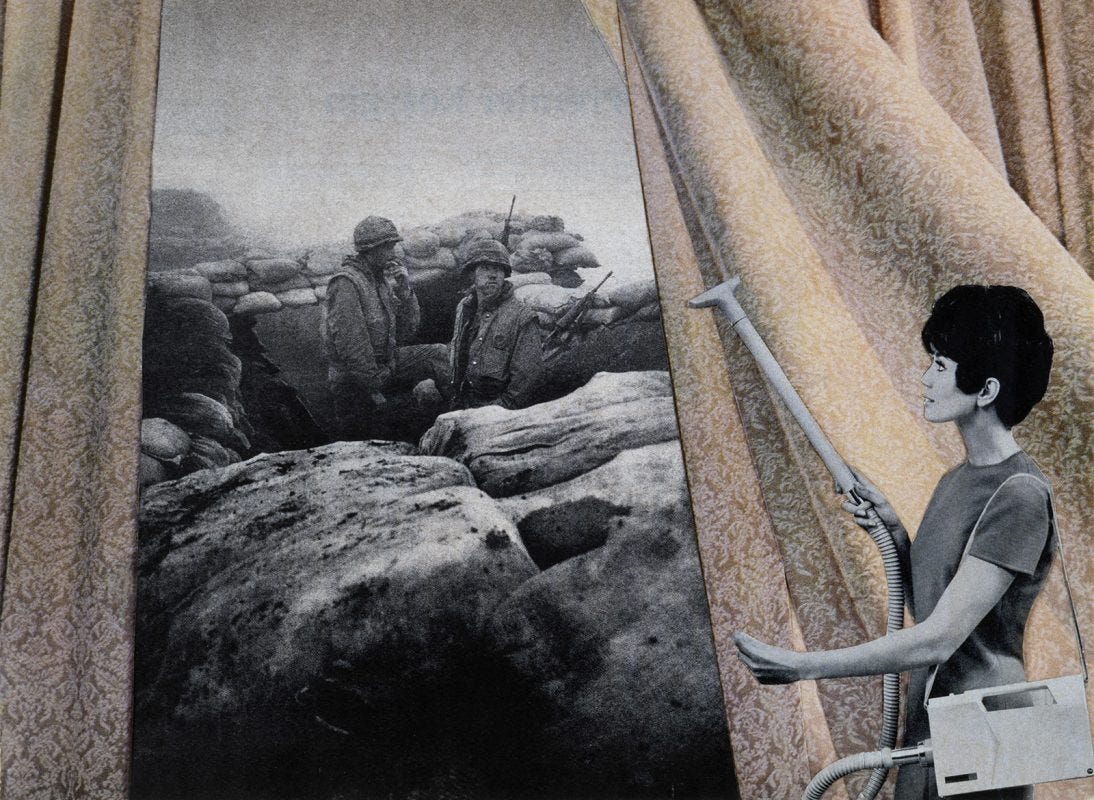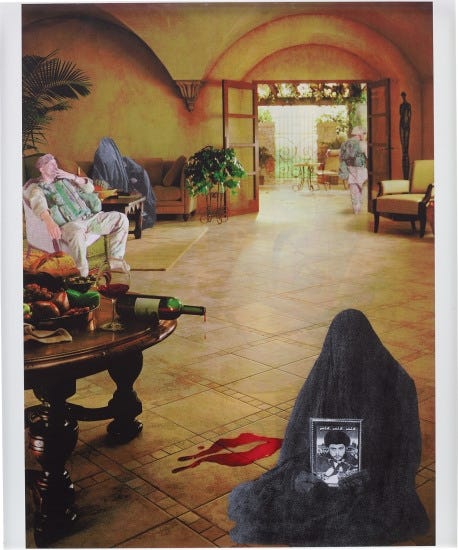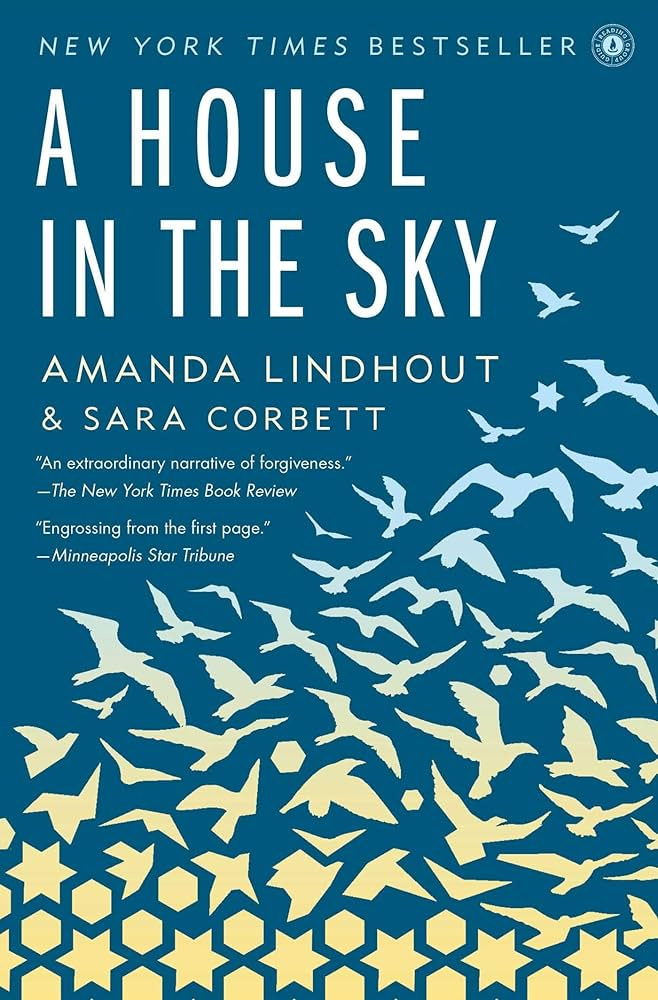Bringing the War Home: The Red Alert App
October 7th, the Age of Breach, and war in the mobile era
Today marks the one-year anniversary of the brutal Hamas attack on Israel, the deaths of 1,200 people that day, and the taking of 240 Israeli hostages, which has now led to the deaths of thousands of innocent people, including the family members of a personal friend of mine from grad school, who were amongst the initial hostages taken. So, I want to invite you to take a moment of silence today for not just the victims of October 7th, but for the victims of the entire war so far.
It feels like just yesterday that I shared my initial reactions to the war, which became one of my most-read posts. Somehow, by a glitch in the matrix, Substack deleted the many comments on the post, but recalling it now, I don’t think most of us realized how intensely this war would spiral outwards, or how many people would die. The death toll is immeasurable, but at least 50,000 people have been killed, and almost 100,000 have been wounded (according to NPR as of today.) This is beyond tragic. The trauma of these events will linger for generations to come. I pray the violence stops. I pray for freedom and peace in the region.
There is little we can do as individuals to stop the machinations of powerful governments at war, but I believe in the power of collective spirit and community desire. If enough people want the war to stop, it will stop.
As a writer and an artist, I find myself both drawn and repelled by the war. I want to block it out, but I also want to follow it like a hurricane tracker. The tug between wanting to consume war correspondents’ livestreams daily and wanting to pretend it isn’t happening remains strong within me.
My partner of almost 10 years is an Iranian exile, from a politically persecuted family, (The American comedian and talk show host Jon Stewart made a movie about his uncle and grandmother called Rosewater) but his mother, cousins, and some close friends remain in Tehran, essentially trapped and under occupation. Because of this, he follows the war closely, with anticipation and hopes that Israel and the US will topple the Iranian regime. Others I know in the Iranian diaspora are more fearful, worried that their loved ones will be killed in the crossfire between these nations.
Red Alert
Given the personal relevance of the situation to him, the war spills over constantly into my daily reality, perhaps more so than it would for the average American. He has an app on his phone, called Tzofar/the Red Alert App. This app tracks threats related to the war and alerts users of dangers in Israel and the surrounding areas. It goes off at all hours of the night and day when anything hits Israel’s Iron Dome. Over one million people have downloaded this app on the Google Play Store, and it is the #1 trending app in the “News” category today in the Apple app store.
I find this app pretty disturbing. It spikes my adrenaline when it goes off on my partner’s phone. It’s more frequent than I expected, and I can’t imagine how it must feel to live under an occupation or in a war zone. I feel for both the Palestinians and Israelis living under threat of constant attack, for the Lebanese, and for the everyday Iranian people.
Every time the app vibrates, I worry that a bigger attack is beginning. Last night, I insisted that my partner turn it off, but then I felt like a bit of a coward for taking that stance. People are suffering so much, and my government and taxpayer dollars are involved, but I’m in the safety of my own home in Florida complaining about hearing app notifications, trying to avoid a phone buzzing when other people are in bomb shelters fleeing real weapons funded/spurned in part by America.
It’s a complex situation and my partner is very strong-willed, so he didn’t turn the app off, even when I insisted.
Bringing the War Home
As we lay in bed last night, listening to Hezbollah attack the Iron Dome with rockets I also found myself thinking about the Age of Breach, an idea from author Alexander Beiner, which details how the virtual world penetrates real life, how distant groups of people can impact the physical reality of others, the leaking of the digital into the geographical and vise versa, but this isn’t really a new era, because the Artist Martha Rosler documented this same phenomenon 59 years ago, exploring how television and magazines were bringing the Vietnam War into American domestic spaces in her project called “Bringing the War Home.”

Now, however, this Age of Breach is intensifying due to the shift from TV to mobile devices. It’s accessible at all hours, constantly available from thousands of angles, in every language, and no longer isolated to one channel on the 6 pm news.
Rosler discusses the project here:
Rosler has continued this project, following America’s subsequent wars.

The artist doesn’t want people to look away from the war. She wants people to feel themselves in the war and identify with it so that we can all move closer to realizing that the pain of war isn’t worth pursuing and that we must collectively put a stop to war.
“I wanted the viewer to have a place to stand… It’s important to me that you enter the image and see yourself standing there. It’s not as though you are on some higher plane.” — Martha Rosler.
She distributed these collages to anti-war activists and the public, hoping to provoke anti-war feelings, and I guess that’s what the Red Alert app is doing for me.
Perhaps we should bring these wars closer to home to reevaluate our involvement. Surely if the war was happening to us, we’d be doing all we could to stop it.
Now You
Thoughts?
Personal reflections?
Do you avoid the war? Or watch it? Why or why not?
Finally, thank you to all those who joined my October Chaturanga Challenge. We’ve got 11 of us in the group and today I’ve invited everyone to focus on peace in the Middle East as we do our chaturanga flows.
Want More?
For a moving memoir that details what it was like to be taken hostage by Islamic extremists, read A House in the Sky by Amanda Lindhout, a Canadian journalist who was taken and held prisoner by Somali terrorists for over a year. I met her during her tour for this book and she seemed, well, still very not okay, as anyone would be after this sort of horrific ordeal.
Also, I found the two videos below particularly moving.
An art and music installation commemorating the victims of Hamas from the NOVA music festival attack.
A former hostage tells her story:
Thanks for reading.
XXXOOO
Charlotte Dune






"Surely if the war was happening to us, we’d be doing all we could to stop it" - not necessarily, from my or your perspective, yes. But some, maybe most, people will vow revenge until death on the enemy.
Also the difference between the age of breach and the broadcast era is now we don't see things from only one or two perspectives, it's hundreds now, and most of them are interactive feedback loops, giving us back what we put in.
It needs to end, and makes me very sad. Far too many people have died.